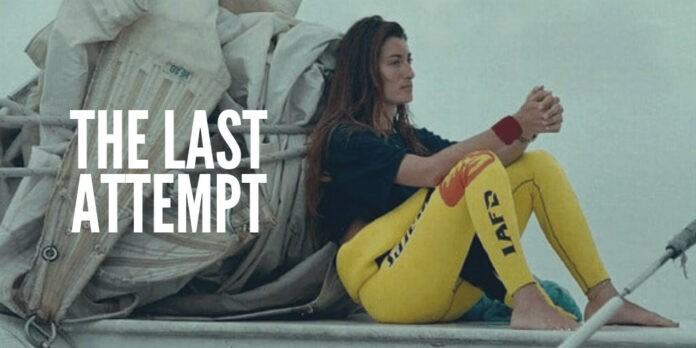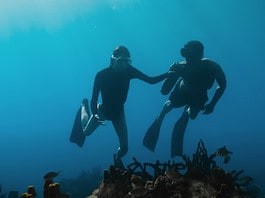Poor Audrey.
I finished reading Carlos Serra’s The Last Attempt, closed the book, and began looking through old E-mails. On October 13th, 2002, at 2:55 am GMT, I received a message from someone who was a resident of the Dominican Republic. He’d seen something horrible on a local TV station and had written about it to one of the many lists I then subscribed to. Lists were, at the time, mainline communication channels for the freediving community. This message was the first one I got the news from. Others followed quickly, echoing the horrible developments.
There had been a freediving accident at Bayahibe the day before. During an attempt to break the absolute world record in the no-limits discipline, celebrated freediver Audrey Mestre, wife of another freediving icon, Francisco ‘Pipin’ Ferreras, had lost her life.
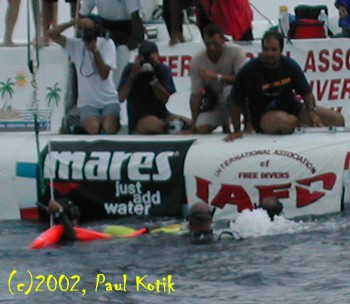
Everyone in the global apnea community was in shock. Everyone immediately went looking for answers to a million questions. The email lists were absolute chaos. At first, nobody could say anything specific about what had gone wrong. Everything was speculation. The best sources were Spanish-language media, but these weren’t accessible to much of the largely English-speaking world of freediving. After several days news finally started to trickle out from the event organizers, the now-defunct IAFD (International Association of FreeDivers). One voice, in particular, stood in the line of fire, that of the IAFD President, Venezuelan-born Carlos Serra. He stood shoulder to shoulder with a grieving Pipin and asked for time to figure out what had gone wrong.
It was too late. Rage had taken over in much of the apnea nation. Serra’s public statements, and some peculiar ones by Pipin, seemed vague and inadequate at best. Voices in the community decried them as lies and cover-ups. The public controversy became gruesome.
Time passed. New information became public occasionally, picked up by a shrinking audience of interest. The matter of the empty pony bottle on Audrey’s sled came up. The sled video recording appeared in a couple of documentaries. IAFD, its credibility exhausted, closed down for good. Rumors of Hollywood producer James Cameron’s interest in optioning the story were floated.
Pipin published a book about his wife’s death. And now, Carlos Serra has published his own.
As I read, I was full of grief. I never met Audrey Mestre personally, but it was like I’d lost a close family member when she died. A fellow freediver had been taken from this planet, and I suffered.
Dr. Jekyll and Mr. Hyde
Pipin Ferreras was, through the 1990s, one of only a handful of stars in freediving, an icon in an emerging international sport. He was my initial focus of attention when I entered the sport in 1997. He was the first one I’d heard of. He was the idol. He was the hero. He was The Man. Once one got more into the game, the negative stories about the icon were heard, and they multiplied. Now, with Carlos Serra’s account of Audrey’s last days, they explode.
Serra describes Pipin’s and Audrey’s marriage as an appalling travesty. Pipin made them look to outsiders and the media like a happy couple deeply in love with the ocean and each other. To those close to them, Pipin was, by Serra’s account, a possessive monster habituated to mental and physical abuse of his wife, increasingly and desperately envious of her as she started to reach greater depths than he had.
Audrey, in The Last Attempt, on the other hand, sought only to please her husband. Profoundly infatuated with him since her first encounter at Los Cabos in 1996, she tried desperately to satisfy his every whim. It was, it seems, never quite enough. I was reminded of the Ike and Tina Turner story.
The Last Attempt includes an interesting psychiatric approach to the story, wherein Serra draws his former partner’s behavior against the diagnostic criteria for malignant narcissism. Serra introduces a comment by a prominent psychiatrist and paints a credible picture of morbidity, recalling, on a small scale, that of several infamous dictators.
The Day Everything Stood Still
The Last Attempt recounts Audrey Mestre’s last day in tremendous and intimate detail: Pipin’s erratic behavior and Audrey’s gloom. The last dive itself. The dreadful recovery of Audrey from the depths, the rush to the local hospital, and then, finally, the end toward which events inexorably moved.
The pony tank that should have filled the sled balloon on Audrey’s dive was empty on that awful day. Audrey got to 171 meters, opened the valve, and nothing happened. Someone had tragically forgotten to fill the tank.
Or had deliberately made sure it would be empty.
Make no mistake: Carlos Serra is convinced that Pipin Ferreras is directly responsible for Audrey Mestre’s death. His only uncertainty is whether or not Pipin intends to murder his wife. The most riveting passages in The Last Dive are, perhaps, the meticulously detailed evidentiary material addressing that very issue, the matter of intent.
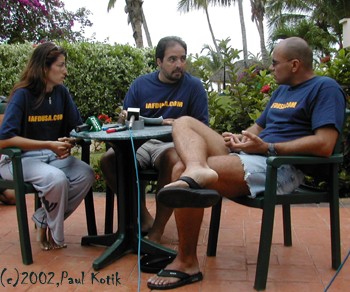
Scuba Safety diver Pascal Bernabe is sourced for eyewitness testimony from the bottom plate and Wiky Orjales from 90 meters. Orjales serves as an interpreter of the Santeria theme which runs through the book. Voodoo. Pipin is a devout believer in the voodoo religion of his native Cuba. The red bandana on Audrey Mestre’s wrist on that deadly morning is conspicuous in video footage and stills seen, now, all over the world. The Last Attempt provides new insight into the bandana’s meaning and links to other Santeria signs and signals.
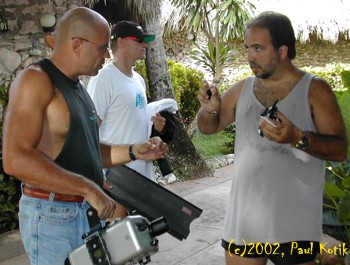
Carlos Serra’s The Last Attempt is a masterpiece. The author presents himself as a man who had lost everything when he broke up with Pipin. Everything saves a duty to tell the truth about Audrey Mestre’s death. Serra lost his job and his home. His wife divorced him. He assures the reader that it is not his intent to judge Pipin but rather to tell his story and let the reader judge him. The Last Attempt is a chronological account of how he has reached his conclusions and in what order. This has ended up as something of a detective’s novel but without a decisive ending. Meticulous as he is, Carlos Serra cannot be omniscient.
The reader, indeed, must write the verdict.
